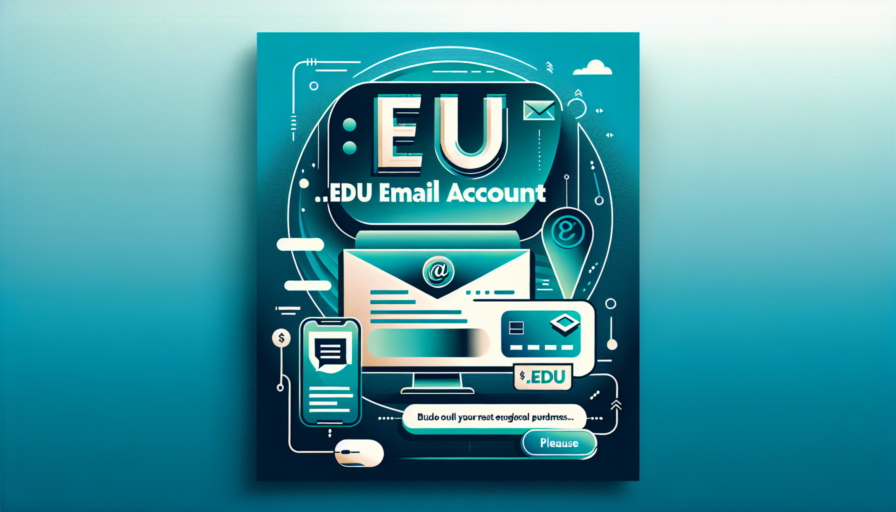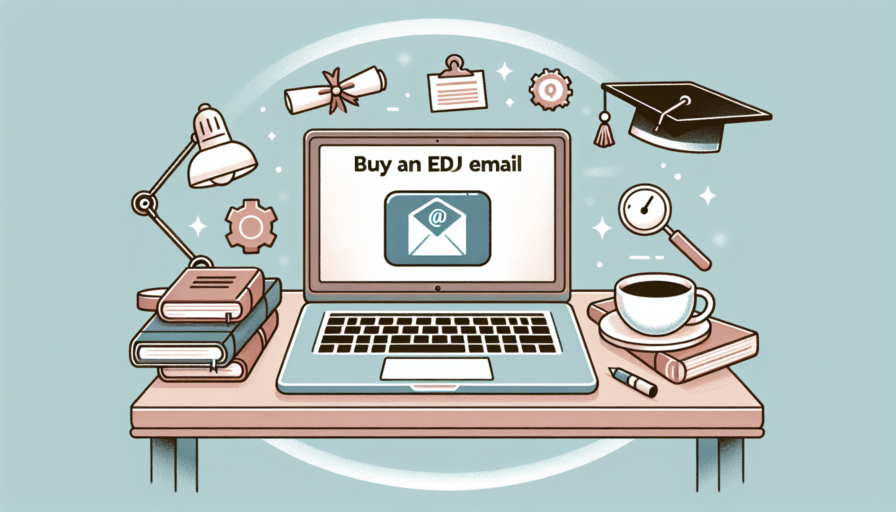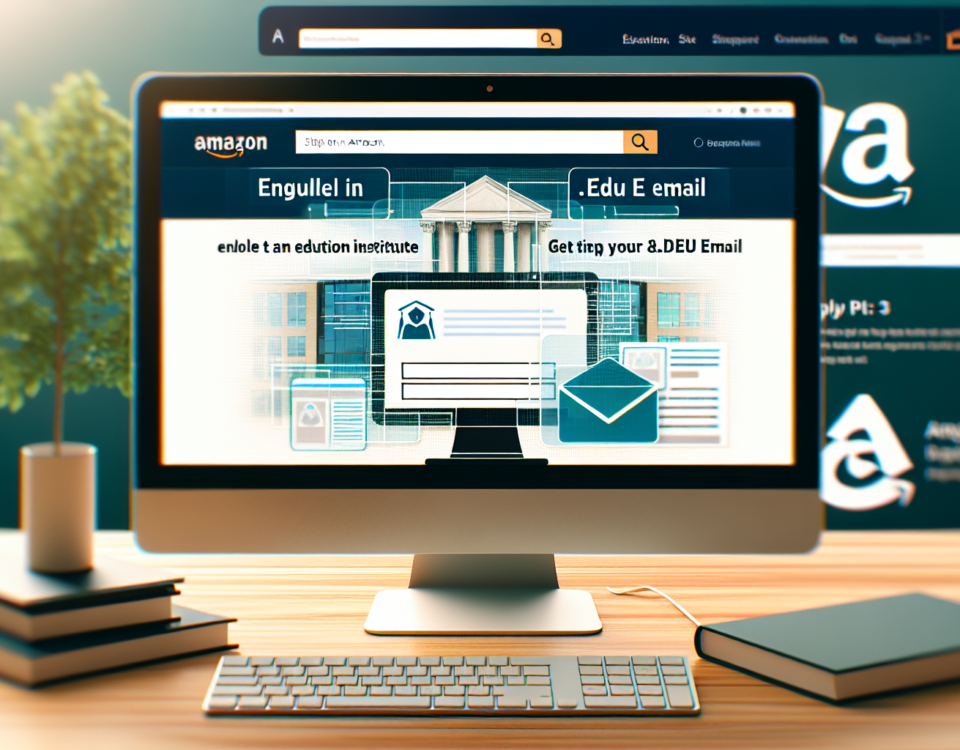How to Get a .EDU Email: Your Step-by-Step Guide to Unlock Academic Benefits
February 15, 2024
Ultimate Guide to Building an EDU Email List for Academic Outreach
February 15, 2024Understanding the Benefits of an Edu Email Address
Having an .edu email address not only signifies your affiliation with an educational institution but also opens up a world of benefits that are often overlooked. These special email accounts, typically provided to students and educators, carry a certain level of prestige because they are exclusively associated with accredited educational institutions. As a result, there is a level of trust and authenticity attached to them that is not commonly found in standard commercial email addresses.
A primary advantage of an .edu email address is access to a plethora of discounts and offers that are not available to the general public. Software companies, for example, often provide significant discounts on their products to students and educators in an effort to support the educational community. This can include free or reduced-cost access to office suites, design programs, and development tools, which are essential for many academic activities. Additionally, online services like web hosting and cloud storage may also be offered at reduced rates, enabling students and educators to leverage these tools for their educational ventures without financial strain.
Exclusive Academic Resources
Another compelling reason for having an .edu email address revolves around exclusive access to academic resources. Scholarly databases, journals, and various online libraries often restrict their services to users with .edu emails, ensuring that their valuable content is reserved for educational pursuits. This access is critical for students and researchers, who rely on current and credible sources to complete their coursework, conduct research, or remain informed about the latest developments in their fields.
Professional Networking Opportunities
Beyond discounts and academic resources, an .edu email address also helps foster a professional online presence and networking opportunities. Many professional organizations and networking platforms recognize .edu emails as verification of academic status, which can facilitate connections with peers, industry experts, and potential employers. It can be particularly beneficial when signing up for academic conferences, webinars, or workshops, where networking is often a key component of professional advancement.
Legitimate Ways to Get an Edu Email Address
Having an edu email address can offer a variety of benefits, from software discounts to access to academic resources. It’s important to note that obtaining an edu email address should be done through legitimate means to avoid any potential violations of terms of service or legal issues. Therefore, for students, alumni, and educators looking to obtain an edu email legitimately, there are several routes one can take that conform with most educational institutions’ guidelines.
Enroll in a Community College
One of the most straightforward methods is by enrolling in courses at a local community college or an online educational institution that offers courses for credit. Many community colleges in the United States provide students with an edu email address upon registration and enrollment. Make sure to select an accredited institution, as this ensures that you’ll receive a recognized and valid email address. This option isn’t just for full-time students; even those taking part-time or non-credit courses often qualify.
Continuing Education Programs
For professionals seeking further educational advancements, continuing education programs offered by universities can also lead to an edu email address. These programs are designed to provide learning opportunities to individuals who are looking to enhance their skills or knowledge base in a particular field. Registration in such programs often includes the provision of an edu email address to facilitate access to educational resources and communication with instructors and peers.
Lastly, another ethical route to obtaining an edu email address is for educators and academic staff. Typically, when you’re employed by an educational institution, you’re automatically granted an edu email. This email not only serves as a means of professional correspondence but also as verification of one’s status as an educator, which can unlock additional academic discounts and resources. It’s essential for faculty and staff to utilize this resource responsibly, in accordance with the policies laid out by their institutions.
How to Manage and Use Your Edu Email Address List Responsibly
Managing an Edu email address list entails a strategic approach to ensure both responsible use and adherence to privacy regulations. Educational institutions accumulate these lists over time, compiling the contact information of students, alumni, staff, and potentially other stakeholders. The primary objective when handling this data should be to maintain its integrity and confidentiality. It’s important to regularly update and cleanse the list to remove any outdated or incorrect information, which helps to prevent miscommunication and protects against the potential misuse of email addresses.
Privacy compliance is a significant aspect of responsibly managing an Edu email address list. As these email addresses are often linked to individuals associated with an institution, one must strictly follow any relevant data protection laws, such as FERPA in the United States. This involves obtaining consent where necessary before email addresses are added to any communication campaigns and providing an easy and clear way for individuals to opt-out or unsubscribe from future correspondence.
When it comes to using your Edu email address list, segmentation might prove beneficial. Break down your list into relevant groups such as current students, faculty, and alumni. This allows for more targeted and meaningful communication. Are you sending out a newsletter, or is it an important announcement about school policy changes? Knowing your audience will result in higher engagement and fewer instances of marked spam. Regularly assessing the performance of your email campaigns through open and click-through rates can also offer insights into how well your messages resonate with your list. This feedback loop is essential for maintaining a healthy sender reputation and should influence how you craft and time your communication.
Lastly, it is advisable to employ secure email marketing tools and protocols. A breach can compromise not just the Edu addresses but the trust placed in the institution by those individuals. Safeguarding your list with high-standard security measures and practicing restraint in the frequency and nature of the content sent can help you maintain a sustainable and respected line of communication with your Edu email recipients.
Maximizing the Potential of Your Educational Email
In the digital age, effective communication through educational emails has become a cornerstone for institutions and educators alike. By harnessing the power of carefully crafted emails, you can unlock a myriad of opportunities to engage students, provide valuable information, and enhance learning experiences. However, to truly maximize the potential of your educational emails, it’s essential to understand the key elements that resonate with recipients and prompt positive responses.
First and foremost, personalization is crucial for boosting the impact of your educational emails. When students receive an email that appears to be tailored expressly for them, engagement levels invariably rise. Utilize data such as names, courses, and previous interactions to create a personalized touch that captures attention. This approach does not only grab the reader’s interest but also fosters a sense of connection with your educational program or institution.
Another pivotal aspect to consider is content relevance. An email filled with pertinent and impactful information is far more likely to be read and appreciated. Dive deep into the specific needs and interests of your audience; cater your content to answer common questions or address typical challenges they may face. By doing so, you ensure that each communication brings real value, thereby strengthening the trust and rapport between students and educators.
Incorporating Interactive Elements
Interactive elements in emails can significantly enhance engagement by creating an immersive and dynamic learning experience. Consider embedding quizzes, polls, or short surveys, to not only pique interest but also to collect valuable feedback. Links to educational videos, infographics, and other multimedia resources can also be integrated to provide a richer content experience. These features transform your educational email from a simple message into an interactive knowledge hub, encouraging students to actively participate and learn.
Frequently Asked Questions About Edu Email Accounts
When it comes to .edu email accounts, a plethora of questions frequently arises, shedding light on the unique nature of these digital identities. These email addresses are more than mere means of communication; they are gateways to a world of educational resources and exclusive benefits.
What Exactly is a .edu Email Account?
A .edu email account is a specialized email address provided exclusively to students, faculty, and staff of accredited educational institutions. Unlike standard commercial or personal email services, these accounts typically carry the domain extension ‘.edu’, signifying their educational status. They serve as a stamp of legitimacy and official correspondence within the academic community. These accounts often come with access to special software discounts, library resources, and journal subscriptions that are not available to the general public.
Who Is Eligible for a .edu Email Account?
Eligibility for a .edu email account is generally reserved for individuals affiliated with accredited higher education institutions in the United States. This includes both full-time and part-time students, along with faculty members, employees, and sometimes alumni. The criteria may vary from one institution to another, and in certain cases, recertification of one’s academic status may be required to maintain access to the email account.
What Are the Benefits of Having a .edu Email Account?
Possessing a .edu email account opens up a wide array of benefits that underscore its value. Users can avail themselves of educational discounts on software and hardware from major technology providers, gain free or reduced-cost access to academic journals, and enjoy enhanced cloud storage solutions offered by various services. Moreover, these accounts are often integral in receiving campus-wide announcements and participating in school-affiliated forums and networks. The prestige of a .edu email also instills a certain level of professional credibility when corresponding in an academic or research context.








